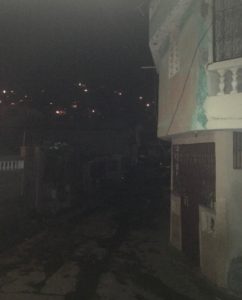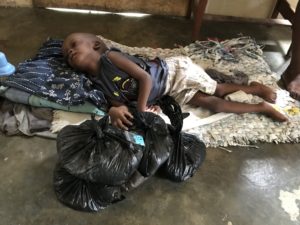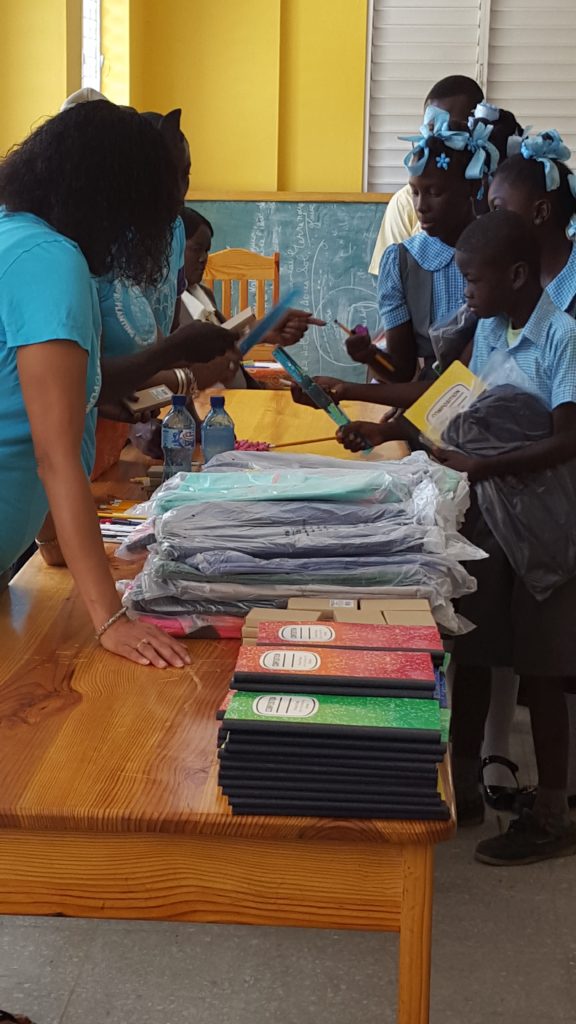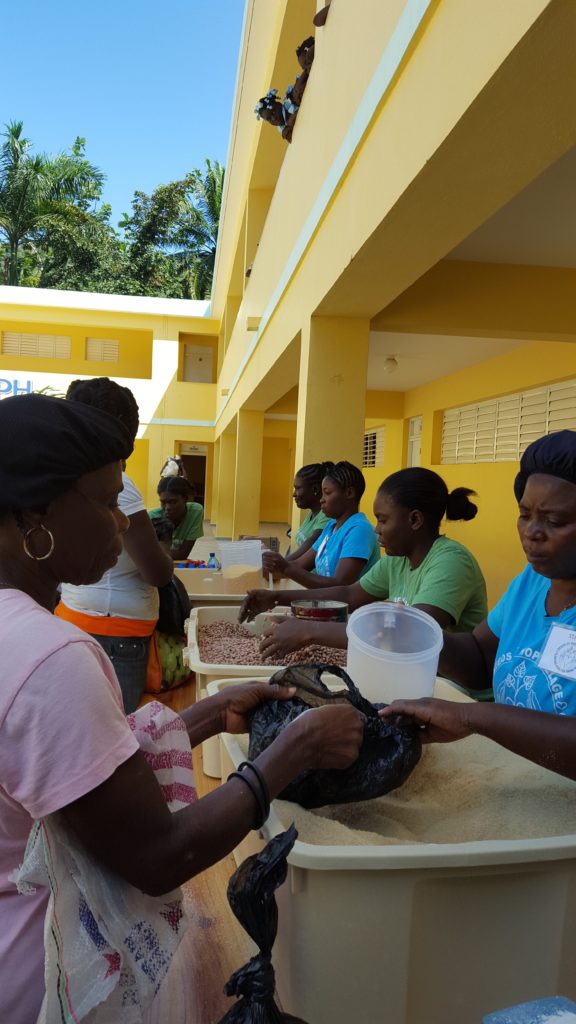
October 2018

I would like to share with you events from my October 2018 service trip to Haiti.
I arrived in Cap-Haitian on October 3rd and spent the following days preparing for our upcoming programs. October 6 was like any other day in Haiti, it was melodic, hot, humid, and chaotic. My team and I spent most of the day buying and sorting needed supplies to be loaded onto the trucks for distribution in the mountainous regions of Port-Margo. Our journey started at sunset and was interrupted by heavy rainfall, forcing the driver to stop briefly to cover up the supplies. We made our way to Port-Margot on the dark, narrow, pothole-riddled dirt roads, arriving around 8 pm. As we prepared to unload the trucks, the ground beneath our feet began to shake violently, with no shelter in sight, we stood huddled in the middle of the courtyard. The shaking eventually stopped and was replaced by silence only pierced by growing cries for help. As I composed my thoughts and checked on those around me, I began to receive a flurry of text messages from my worried children who informed me the earthquake was a magnitude of 5.9 resulting in many fatalities. At that moment I found myself torn between my children’s pleas to return home to safety and pleas for help from those around me. Calmly, I assured my children I was fine and promised to leave if things deteriorated any further. Without delay or hesitation, my team and I began to prepare for the days ahead. I am proud to say, SHVF was the first and only organization on the ground providing assistance to those in need. We distributed food and medicine to more than 400 families, including the homeless, sick, and the elderly. We supplied toothpaste, toothbrushes, floss, and soap to more than 200 students. A grant from the Women’s Alliance enabled SHVF to provide school supplies to an additional 25 students, bringing the total student aid to more than 250 students. SHVF is a direct engagement grassroots organization, rooted in the belief that everyone’s dignity ought to be affirmed regardless of need. Your donation today will be used to assist the elderly, women, and children of Haiti who are victims of circumstance. The challenges facing Haiti are endemic, overwhelming, and seemingly endless; yet, at difficult moments, I hear the voice of Rev. Nathan saying we can not do everything, but doing something is better than doing nothing at all.
March 2017
 Seeds of Hope Village Foundation (SHVF) has been working on some massive undertakings over the course of the past year. After a very long uphill battle and countless hours of international phone calls and travel, SHVF is pleased to announce it is now officially registered as a non-government organization (NGO) with the Haitian government. SHVF was also designated as a 501(c)3 tax-exempt organization by the IRS in January 2017!
Seeds of Hope Village Foundation (SHVF) has been working on some massive undertakings over the course of the past year. After a very long uphill battle and countless hours of international phone calls and travel, SHVF is pleased to announce it is now officially registered as a non-government organization (NGO) with the Haitian government. SHVF was also designated as a 501(c)3 tax-exempt organization by the IRS in January 2017!
A snapshot of Haiti in 2017:
According to the 2014 United Nations Development Program, the poverty rate in Haiti was 58.6% with those living in abject poverty at 24.7%, roughly ¼ of the population. Presently, Haiti’s literacy rate is 61.1% and 1 in 5 children suffer from hunger and malnutrition. Earlier this year, our Founder and Executive Director Madeleine Jeune, and our Community Health Advisor, Jean Brodnax, traveled to the northern part of Haiti on a service trip. They flew into Cap-Haitian with 9 suitcases, 3 backpacks, and 3 carry-ons, all tightly packed with school supplies, medical supplies, and clothes. After navigating their way through the crowded streets of pedestrians, merchants, motorcycles, and cars, they finally made it to their destination. They arrived to children playing in the street, music blasting, and lots of curious onlookers.
 Early the next day, the crew headed to the Cap-Haitian open-air marketplace, where they purchased all of the food for distribution. The food and educational assistance SHVF provides to families are an important and essential part of our community outreach. On this past service trip, we worked with Ecole Saint-Joseph where 200 students received school supplies, and 250 families received food assistance.
Early the next day, the crew headed to the Cap-Haitian open-air marketplace, where they purchased all of the food for distribution. The food and educational assistance SHVF provides to families are an important and essential part of our community outreach. On this past service trip, we worked with Ecole Saint-Joseph where 200 students received school supplies, and 250 families received food assistance.
While SHVF is passionate about assisting those in need, we are also committed to addressing the fundamental issues of poverty, through education, training, and employment. These programs create short and long term employment for the locals. Our spring program in Haiti created about 20 temporary jobs, and SHVF currently has 3 permanent employees.





